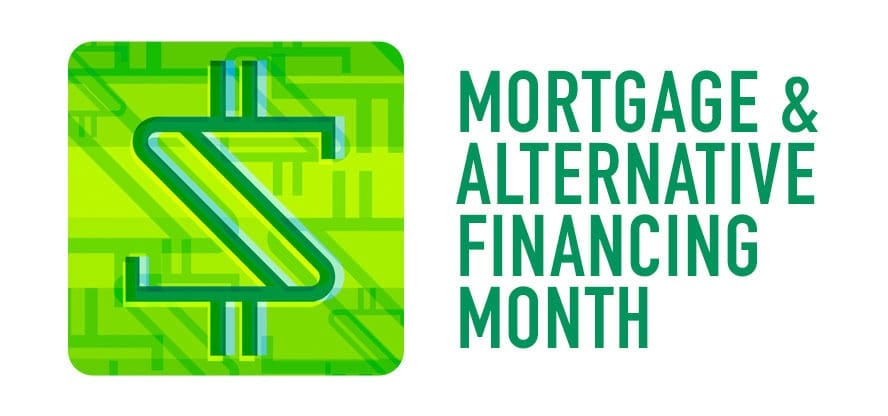In May, we’ll go deep on money and finance for a special theme month, by talking to leaders about where the mortgage market is heading and how technology and business strategies are evolving to suit the needs of buyers now. A prestigious new set of awards, called Best of Finance, debuts this month too, celebrating the leaders in this space. And subscribe to Mortgage Brief for weekly updates all year long.
Worries that the U.S. may default on its debt could keep mortgage rates climbing this week even after negotiators reached a deal over the weekend to raise the debt ceiling.
For bond market investors who provide the funding for most U.S. mortgages, the debt ceiling crisis won’t be over until Congress actually votes to approve the deal. With a firm June 5 deadline looming, a House vote isn’t expected before Wednesday, with timing in the Senate uncertain, Politico reports.
As the impasse dragged on last week, Fitch Ratings placed Fannie Mae and Freddie Mac on rating watch negative late Thursday, citing the U.S. government’s “direct financial support” of the mortgage giants.
The move — essentially a warning to investors that Fannie and Freddie could be stripped of their “AAA” rating if the crisis isn’t resolved — came the day after Fitch analysts placed the U.S. government’s AAA rating on rating watch negative, citing “debt ceiling brinkmanship.” Actual ratings downgrades would raise the cost of borrowing.
The U.S. reached its $31.4 trillion debt limit on Jan. 19, and the U.S. Treasury has been taking “extraordinary” measures to avoid exhausting its cash position. If that day comes before an agreement to raise the debt ceiling is finalized by House and Senate votes, the government could begin missing payments on some obligations.
“The brinkmanship over the debt ceiling, failure of the U.S. authorities to meaningfully tackle medium-term fiscal challenges that will lead to rising budget deficits and a growing debt burden signal downside risks to U.S. creditworthiness,” Fitch analysts said in placing the U.S. long-term foreign-currency issuer default rating on rating watch negative.
A recent Zillow analysis concludes that mortgage rates could hit 8.4 percent in the unlikely event that the U.S. does default, raising the monthly payments for borrowers taking out mortgages in the future by 22 percent.
Adding to the pressure on mortgage rates are renewed worries that the Federal Reserve may continue to raise interest rates this year — or at least refrain from bringing them back down — due to worries about persistent inflation.
Mortgage rates hit new 2023 highs
The Optimal Blue Mortgage Market Indices show that rates on 30-year fixed-rate conforming mortgages have surged by half a percentage point in just over two weeks, climbing from 6.34 percent on May 11 to a new 2023 high of 6.85 percent on Friday.
Rates for conforming loans eligible for purchase and guarantee by Fannie Mae and Freddie Mac have now surpassed the previous high for the year of 6.84 percent, registered on March 8, but have a ways to go before reaching the 2022 high of 7.16 percent seen on Oct. 24.
“Hawkish commentary from two Federal Reserve officials contributed to a meaningful re-shape of the forward curve last week, which is now pricing in 5 percent + Fed Funds through year-end vs. the former expectations for cuts as early as June,” BTIG analyst Eric Hagen said in a note to clients Tuesday. “St. Louis Fed President Bullard, who does not vote on the FOMC [Federal Open Market Committee] in 2023, continues to back two more increases. Minneapolis [Federal Reserve President Neel] Kashkari, who does vote, also doubled down on the notion that it is premature to reverse policy at this stage.”
Primary mortgage spread above historical norms

At 2.98 percentage points as of May 25, the primary mortgage spread was 90 basis points above the six-year average of 2.08 percentage points. | Source: Black Knight and Federal Reserve data retrieved from FRED, Federal Reserve Bank of St. Louis
Assuming lawmakers do sign off on the debt ceiling compromise, the good news is that it pushes the next deadline out to 2025, Hagen noted. That could help ease the “spread” between 10-year Treasury notes and mortgages, which is “essentially the widest level for spreads in the last 15 years, Hagen noted.
The primary mortgage spread — the difference between the yield on 10-year Treasurys and rates for 30-year fixed-rate conforming mortgages — has climbed to 3 percentage points this year, adding nearly a full percentage point to the rate borrowers pay when taking out a mortgage.
That’s partly because investors in mortgage-backed securities know that loans they fund now could be refinanced if rates fall later this year or next, so they demand higher yields to offset prepayment risk. But the primary mortgage spread also reflects investors’ confidence that Fannie Mae and Freddie Mac will keep payments flowing to them even when homeowners default on their loans.
In placing Fannie Mae and Freddie Mac on ratings watch negative, analysts at Fitch Ratings said the ability of the mortgage giants to repay their obligations “stems primarily from cash flows from operations, as opposed to direct reliance on the federal government.”
Fannie and Freddie “continue to execute on their mission to provide liquidity, stability and affordability to the housing finance industry” and would likely weather a temporary U.S. default without being downgraded, Fitch analysts noted.
But the companies rely on access to capital markets and a “sustained deterioration in available liquidity and or inability to access capital markets over an extended period, absent intervention by the U.S. government, may result in negative rating actions,” Fitch analysts said.
Get Inman’s Mortgage Brief Newsletter delivered right to your inbox. A weekly roundup of all the biggest news in the world of mortgages and closings delivered every Wednesday. Click here to subscribe.













